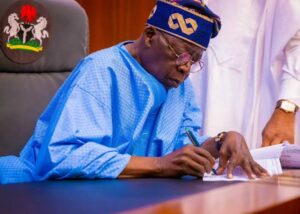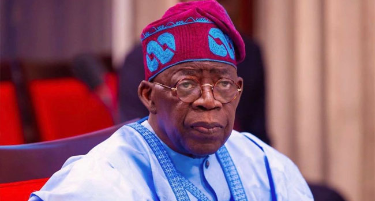President Bola Ahmed Tinubu has mandated a comprehensive review of the recently announced governing boards of tertiary institutions across Nigeria. This directive comes ahead of the planned inauguration and retreat for the nominees, indicating a proactive response to public concerns about the fairness and inclusivity of the appointments.
The Federal Ministry of Education had recently unveiled the list of nominees for positions such as chairmen, Pro-Chancellors, and members of the boards and councils of universities, polytechnics, and colleges of education.
The inauguration and retreat for these nominees were scheduled to take place on May 31. However, this announcement sparked significant public backlash, as the nominations appeared to lack a balanced representation of Nigeria’s diverse states.
In response to the widespread criticism, the Special Adviser to the President on Information and Strategy, Bayo Onanuga, released a statement on Thursday addressing the issue. He acknowledged that public feedback had highlighted discrepancies in the nominations, with some states receiving multiple appointments while others were scarcely represented.
“President Tinubu has directed a complete review of the list of members,” Onanuga stated. “He acknowledges the feedback from across the country and is committed to ensuring strict compliance with the principle of federal character as entrenched in the constitution.” This review aims to ensure that the distribution of appointments reflects a fair national spread, ensuring adequate representation for every part of the country.

The directive for a review aligns with the constitutional principle of federal character, which is designed to promote inclusivity and prevent dominance by any single region or group. By emphasizing this principle, President Tinubu demonstrates his administration’s commitment to equitable governance and national unity.
The review process is expected to address the concerns raised by various stakeholders, including the Academic Staff Union of Universities (ASUU). On Tuesday, the Bauchi zone of ASUU criticized the appointment process, expressing disappointment over the perceived lack of fairness in the distribution of governing board positions across federal tertiary institutions. They suggested that the administration should consider reinstating the members who were previously dissolved.
ASUU’s criticism underscores the importance of balanced representation in educational governance, particularly in a country as diverse as Nigeria. The union’s concerns reflect broader apprehensions about ensuring that all regions and communities have a voice in the management of the nation’s educational institutions.
President Tinubu’s directive for a comprehensive review is a significant step toward addressing these concerns. By ordering a reevaluation of the nominations, the President aims to rectify any imbalances and ensure that the appointments align with the constitutional mandate of federal character. This move is expected to enhance the legitimacy and acceptance of the governing boards among stakeholders and the general public.
As the review process unfolds, the administration will likely engage with various stakeholders to gather input and ensure that the final list of nominees reflects a fair and inclusive representation of Nigeria’s diverse population. This approach not only adheres to constitutional principles but also fosters national cohesion and trust in the government’s commitment to equitable governance.
The scheduled inauguration and retreat on May 31 may be rescheduled to allow sufficient time for the review process. This delay, while necessary, underscores the administration’s dedication to getting the appointments right and ensuring that they meet the highest standards of fairness and inclusivity.
In conclusion, President Tinubu’s directive for a total and comprehensive review of the governing boards of tertiary institutions demonstrates his administration’s responsiveness to public feedback and commitment to constitutional principles. This review aims to ensure that the appointments reflect Nigeria’s federal character and promote national unity, ultimately strengthening the governance of the nation’s educational institutions. As the process progresses, the administration’s engagement with stakeholders will be crucial in achieving a balanced and representative outcome.




